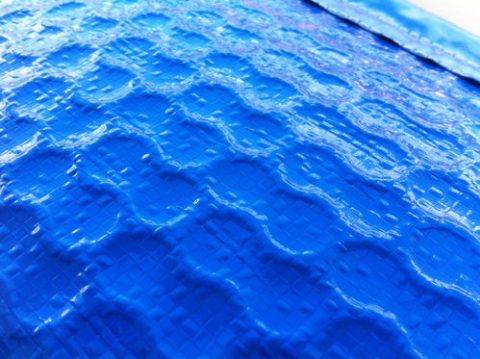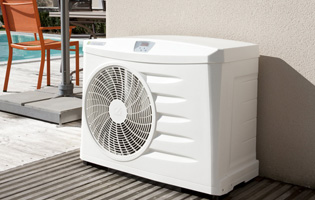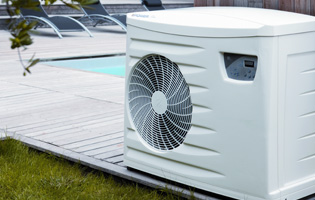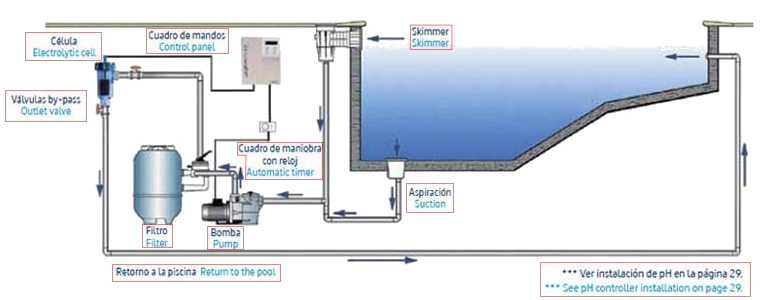
Services and equipment.
Maintenance and cleaning
Fénix Piscinas offer a cleaning and maintenance service based on 3 principles:
Specialization: qualified personnel, with the appropriate technical knowledge. Not only in the cleaning of the glass, but also in the chemical treatment of water. Knowing the technological innovations in chemical products.
Trust: the commitment of a job done, even if our clients do not reside here.
Discretion.


New constructions and reforms
We construct Swimming Pools, we reform the old ones, we repair the systems of filtration, we climatize, we install units of saline chlorination.
We offer our maintenance and cleaning service all year round. This way, your only concern is to enjoy your pool.
Dedication and quality
Maintenance
24h Support
Services and techniques
When we just built your pool, we're still there. The equipment and systems of purification, as in the constructive elements, suffer from wear, work many hours a year, there are breakdowns that need to be solved, in the warm months of the year your pool can not wait. We know this, and for this we give a response in 24 hours.
Thermal blankets, energy efficiency according to the new RITE
 On February 29 came the new regulation of thermal installations in buildings (RITE - Spanish acronym) that requires the use of thermal barriers in swimming pools. The benefits obtained by the use of thermal blankets in heated swimming pools are validated by the new Regulation of Thermal Installations in Buildings (RITE), which obliges them to use them.
On February 29 came the new regulation of thermal installations in buildings (RITE - Spanish acronym) that requires the use of thermal barriers in swimming pools. The benefits obtained by the use of thermal blankets in heated swimming pools are validated by the new Regulation of Thermal Installations in Buildings (RITE), which obliges them to use them.Among its technical instructions is the requirement that "the water sheet of the heated swimming pools" is protected "with thermal barriers against the loss of heat of the water by evaporation during the time they are out of service". This is reflected in the title Energy Saving in Swimming Pools (IT 1.2.5.5), within the section Energy Recovery in the chapter on Energy Efficiency Requirement.
February has marked the entry into force of this regulation, approved in Royal Decree 1027/2007 and which replaces the regulations in force up to this date. This is a set of mandatory requirements in the thermal installations of buildings to promote energy saving and efficiency in a context of combating climate change. In this sense, the mandatory use of these thermal barriers in swimming pools is preceded by excellent results obtained in practice by manufacturers of blankets.
Our suppliers have 30 years of experience in the manufacture and installation of these types of barriers, with more than 50 projects carried out in swimming pools all over Spain, of different characteristics and measures. The Pool Cover Isothermal Blanket is designed to combine the convenience of handling and the most effective technology. Its isothermal fabric consists of three layers: two made of polyethylene, which prevent the absorption of water and heat transfer, increasing the isothermal capacity of the whole, and another top layer of polyester coated on both sides of polyethylene, which gives it a large Strength and durability.
The use of Pool Cover contributes in a very important way to the sustainability of the pool, since it avoids the evaporation of the water and maintains its temperature, with the consequent energy saving that this means. In the case of covered swimming pools, this fact leads to a considerable saving of maintenance, both in products and in machinery for the adequate conservation of water. In addition, another benefit derived from its use is the best preservation of the interior of the building with the elimination of moisture and condensation in the structure.
The installation of this blanket is completed with a furler, which can be either manual or automatic, depending on the dimensions and needs required. In any case, it is a very easy to use and comfortable equipment for the user, whose benefits are measured in the individual savings of the facilities, the comfort of the user and also in a collective environmental dimension favorable to our environment.
Geo Bubbles
 The thermal blanket manages to raise the temperature of the water enough to make the bath a pleasure.
Depending on the hours of solar exposure, variations of ambient temperature of day or night, the thermal blanket can increase temperature by more than 5 °.
The thermal blanket manages to raise the temperature of the water enough to make the bath a pleasure.
Depending on the hours of solar exposure, variations of ambient temperature of day or night, the thermal blanket can increase temperature by more than 5 °.The thermal blanket rests on the surface of the water of your swimming pool during the afternoon and evening, avoiding that the heat accumulated by the day is lost in the colder hours. At the same time helps in cleaning the water acting as a barrier for dust and dirt.
How does it work
What pools do you use
Depending on the volume of the pool and the capacity of the heat pump, it is estimated that the machine can use between 2 and 5 days in air-conditioning the water at the desired temperature. There are heat pumps for any size of pool, there are even models capable of heating up to 200 m3 of water.Efficiency and savings ratio
 The COP is the coefficient of performance of an apparatus, its name comes from the acronyms of the term in English (Coefficient of Performance). The higher the COP the better the performance of the machine. According to this formula the COP of the heat pumps is around 1-5, since for each kW consumed they provide 5 kW, that is why the pumps are considered as one of the most efficient means to heat the pools.
The COP is the coefficient of performance of an apparatus, its name comes from the acronyms of the term in English (Coefficient of Performance). The higher the COP the better the performance of the machine. According to this formula the COP of the heat pumps is around 1-5, since for each kW consumed they provide 5 kW, that is why the pumps are considered as one of the most efficient means to heat the pools.
Which pump to choose?
 The most important thing when choosing a heat pump is to know the volume of your pool, to know the liters it has to heat. The power of the machine will mark the maximum heating efficiency. Its capacity is indicated according to the m3 that can be heated. Another important feature is that they have filtration priority; In this way, the filter pump will start when the water temperature is lower than the one that is programmed
The most important thing when choosing a heat pump is to know the volume of your pool, to know the liters it has to heat. The power of the machine will mark the maximum heating efficiency. Its capacity is indicated according to the m3 that can be heated. Another important feature is that they have filtration priority; In this way, the filter pump will start when the water temperature is lower than the one that is programmedHow to calculate the volume of your pool

Average Depth: In case your pool has an increasing height towards the bottom: make a mean between the bottom of the pool and the lower part; Maximum depth + minimum depth) divided by 2.
Where is installed
 Connection to drain
Connection to drainIt is advisable to provide an evacuation connection from the heat pump to the drain since it produces a lot of water by condensation, rather than that of a traditional air conditioner. Heat pumps have a lower outlet that can be piped.
Equipment without installation
Some manufacturers have developed devices to facilitate the work of the heat pumps without having to do any reform in the existing installation. This apparatus captures the pool water and passes it through the pump system, from where the water is returned back to the pool. In this way, it makes the work of the pump completely autonomous from the purification and pumping circuit of the pool. You just need an electrical connection. You have to make sure how many liters they can heat.
Do they do a lot of noise?
Generally the heat pumps have a good acoustic efficiency and are not very noisy. In any case you should choose a pump that emits as little noise as possible, to make the bathroom task much more pleasant. This is especially important if the pump is installed on foot or near the water, in the bathing or resting area. Before you buy, find out the decibels that the machine marks, in case you have to look for a better location.
Avoiding minimum temperatures
The heat pumps are efficient from a minimum air temperature, estimated at at least 5 ° C. Below this temperature the consumption is higher because the electricity is greater than it needs to provide heat that is captured from the environment. Therefore they are not recommended when there are minimum temperatures.
Indoor pool
When you cover the pool with an installation with metal profiles and polycarbonate will greatly improve the efficiency of the appliances you use to heat the water. Approximately 94% of the heat loss of a pool is produced by the surface, which is why you would achieve lower or lower losses covering the pool, even though this requires a higher investment. But you can also improve energy efficiency by covering the pool with summer blankets, much cheaper, to avoid the loss of heat in the water and evaporation.

Frost protection
An important sign especially on flat roofs. Certified by TÜV Rheinland from -50ºC to 115ºC.Walkable solar panel
Cast in one piece virtually unbreakable. Lack of corrosion and resistant to all chemical treatments.High efficiency
Up to 0.8 Kw./h/m². Guaranteed performance. Highest temperature increase with less panel surface.Degree of action
Valid to heat any surface of pool. Ideal system to duplicate the use of the swimming pool.OPERATION OF THE SYSTEM AND ITS ADVANTAGES
The most healthy and natural system for the treatment of pool water is Saline Electrolysis, which for its operation uses only the combination of three elements:
WATER + COMMON SALT + ELECTRICITY
It is based on natural production through electrolysis, sodium hypochlorite, oxygen and ozone, which guarantees a perfect treatment of the water of your pool thanks to its oxidizing and residual disinfectant capacity.
Although the sodium hypochlorite produced in this way is based on the same principle as the manufacture of traditional chlorine, it does not contain chlorines or isocyanides.
Saline electrolysis is nothing more than the installation of a micro-chlorine factory in your pool to which an amount of salt (raw material) is added in the vessel for the in situ generation of sodium hypochlorite.
REASONS FOR USING SALINE CHLORINE
Healthy.
This is a natural system, because due to the slight degree of salinity contained (5 to 6 grs / l1) equivalent to the salinity of the tear of the human eye, and six times less than sea water provides the following advantages: Salt is a mild antiseptic, which eliminates skin and eye irritations.
Eliminates the unpleasant smell of the environment in heated and closed pools.
It does not contain highly harmful chlorine and isocyanides, which require a close control of its dosage, causing irritations to the eyes, ears, nostrils, hair alterations, odors, etc.
Also, salt water provides a more beautiful and natural tan because it contains iodine among its properties.
It's safer
Because it eliminates the high risks of handling and storing chemicals that are highly flammable and dangerous on the premises and toxic to people, especially children. To minimize these risks, there is already a regulation, such as the new chlorine storage regulation ITC MIE APQ 003, published by the Ministry of Industry and Energy, in the chemical storage regulations RAQ. The losses that have been produced by the chlorine are difficult to control since the shock wave of the deposits reaches to reach until 1200 m of distance. In many countries concerned with environmental improvement, the handling, transport and storage of the chemical is disappearing.
It's economical
Saline chlorination technology is a cheap system compared to other technologies because of the 100% savings in the cost of chemicals. (Algicides and fluoculants).
It is a closed process in which there is no loss of any product as they decompose, act and regenerate. That is to say, chlorine, once it has done its function to destroy bacteria and algae, is converted back into salt, this explains that the concentration of salt remains constant and that only small salt replenishments due to the loss occurring In the glass by its own use, by filter washes or excessive rains.
It is automatic and with minimum maintenance
Its start-up is reduced to connecting the system and indicating the desired production. Its maintenance is minimal and very comfortable since it works automatically with the clock of its purifier.
It is an ecological system
As we all know the basis and principle of life is water, without water there is nothing, but we often abuse and the little we have contaminated it.
The treatment of water by saline electrolysis conserves the water for several years so it reduces the discharge of water to the rivers and the proliferation of bacteria in decomposition during the winter, therefore we help to preserve the environment and the savings in The consumption of water.
Easy installation
Its installation is easy and simple, it does not need civil work. The electrolytic cell is inserted into the water supply or return pipe to the pool, whereby the water passes through the cell once it has been filtered, producing electrolysis at the anode and cathode of the cell and producing the Sodium hypochlorite directly to your pool. The chlorinators have two components: the power supply and the electrolytic cells. There is a wide range of chlorinators that after studying the characteristics of the pool can be chlorinators with a minimum production of 20 gr / h for single-family swimming pools to industrial pool chlorinators that require large chlorine productions.
For any type of pool
It can be installed in any type and size of pool, whether private or public, heated or not (spas, sports centers, gyms hotels, communities, water parks, fountains, spas etc ...). Fits all types of filtration systems and is compatible with any coating.
Water quality and health
Every time the facilities and control systems in swimming pools are more sophisticated (Redox, computers, trichloro etc ...) But in the water always the same problems, chlorines and isocyanides, in short the quality of the always questioned since these products are the Causing a large number of problems in bathers, such as eye irritation of the throat and confer bad taste, smell and taste to water.
On the other hand incomplete disinfection of water can cause health problems to be taken into account since many pathogenic microorganisms that are not totally eliminated can ultimately be ingested in quantities important enough by bathers to cause problems such as gastroenteritis, A cutaneous mycosis (papillomavirus, fungi etc ...) and even hepatitis type A (virus).
Hence the importance of avoiding all these problems by having a healthy water and a good hygienic quality, therefore, saline chlorination systems will provide the water in your pool with an unbeatable hygienic quality without the need to incorporate the harmful elements of chlorine or industrial trichlorides.
The best alternative
Saline chlorination offers substantial advantages over other technologies. For decades chlorine gas, chlorine gas, chlorine granules, pellets or injection of liquid chlorine have been the most common methods for water sanitation.
In recent times, other systems such as ozone technology and ionization have emerged, but are systems that are expensive in their purchase and operation costs and also need to continue to add chemicals (at least 50% chlorine dosage ) To maintain water quality.
Undoubtedly among these alternatives, the one that really brings real advantages, is saline chlorination, which is being mostly accepted by the market both the user and the professional distributor.
Sufficient system tested
Saline chlorination technology has been in place in Australia for 30 years and where 95% of swimming pools adopt this system. The Australian industry in the saline chlorination sector is considered a leader in both experience and technology, continually providing improvements and innovations. Its products are exported to all countries.
Certainly saline electrolysis technology offers us great advantages as a method of water disinfection as it proves to be the most healthy, ecological, safe and effective offering us visibly superior water quality for a longer time and without the usual discomfort of chlorine.





